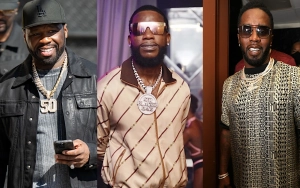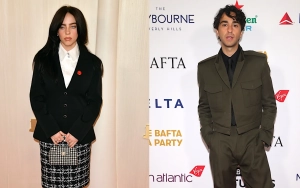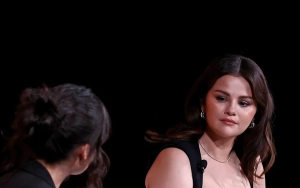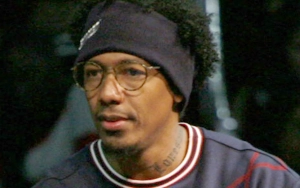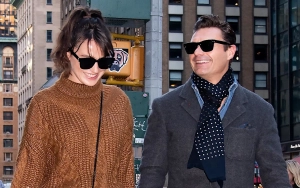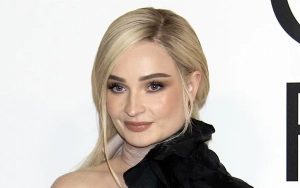
Chief executive officer of AEG Live, Randy Phillips, calls the Jacksons money hungry, while co-CEO Paul Gongaware pulls his 'I don't recall' card during a question and answer with the family's lawyer.
- Jun 5, 2013
AceShowbiz - Tuesday, June 4 was Randy Phillips' turn to take the witness stand in Michael Jackson wrongful death trial. The AEG Live chief executive officer insisted they bore no liability in MJ's death, claiming accusations that AEG hired disgraced Dr. Conrad Murray and failed to do background check on him was an attempt made by Katherine to extort money from the company.
During the occasion, Phillips was also confronted with the content of his email which contradicted AEG's defense that they didn't feel the need for legal or financial checks on Murray because the doctor was personally hired by the late King of Pop. In his email, Phillips told Kenny Ortega not to worry after the director voiced his concerns over MJ's frail condition.
"I had a lengthy conversation with Dr. Murray, who I am gaining immense respect for as I get to deal with him more. He said that Michael is not only physically equipped to perform and, that discouraging him to, will hasten his decline instead of stopping it," Phillips said in his email. "This doctor is extremely successful (we check everyone out) and does not need this gig so he [is] totally unbiased and ethical."
During his Tuesday testimony, Phillips explained what was written in the letter. "I wrote it in the e-mail that I thought at the time he had been checked out," he claimed, adding he said Murray was successful "because that's what I was told." "In retrospect, it's not 100|percent| true," the executive uttered. "There's what I thought at the time versus what I learned afterwards."
Phillips was also grilled about an email where he said that Jackson "needs to be controlled as much as possible." In his defense, Phillips said he was referring to Michael's spending that had gone out of control.
Another witness that day was AEG's co-CEO Paul Gongaware. He frequently answered questions from the Jacksons' lawyer with "I don't recall," which prompted the attorney to ask him if he thought it would have been better for him if he had reviewed documents and e-mails before coming to court for testifying. "I relied on the advice of my attorney," he replied.
In a previous testimony, Gongaware who worked with MJ in some of his previous tours claimed he never saw any signs that Jackson used drugs. The AEG executive said he became aware of the singer's problem with painkillers only after the late pop icon made a public announcement and went to rehab in 1993 following the cancellation of his "Dangerous" tour.
Gongaware said he only handled logistics and didn't travel with Jackson back then but admitted he later worked closely with the singer in the second half of his "HIStory" tour and carried more responsibilities during the gig. He once again said that there was "no indication at all" that Jackson had drug addiction or brought a doctor during his tour.
The concert promoter additionally testified in front of the jurors that Jackson, who died in 2009 of an overdose of anesthetic propofol, did excellent in "HIStory" tour. "He only missed one," he told the court. "That was when Princess Diana died. He heard about the accident, went to bed, woke up, found she passed away and it affected him deeply."
Gongaware's testimony seemed to contradict MJ's own statement in an interview before his death. "I woke up and my doctor gave me the news, and I fell back down in grief and I started to cry," the singer once recalled to Barbara Walters. "That's why the inner pain, the pain in my stomach and in my chest, so I said 'I cannot handle this. It's too much.' "
In a Monday hearing, Gongaware was confronted by an email he sent to Jackson's assistant that the deal with Murray was "done at $150k per month, per MJ. He needs about 10 days to wind down his practice then he will be full time." The executive claimed it was a message to Jackson "that I had done what he asked." He said he negotiated with Murray only because he was "instructed to by Michael Jackson."
According to him, Murray originally asked for a "ridiculous" total of $5 million, but he made an $150,000-a-month offer, which the doctor initially turned down. "I told him the offer comes directly from the artist," he testified. "He accepted it right away."




